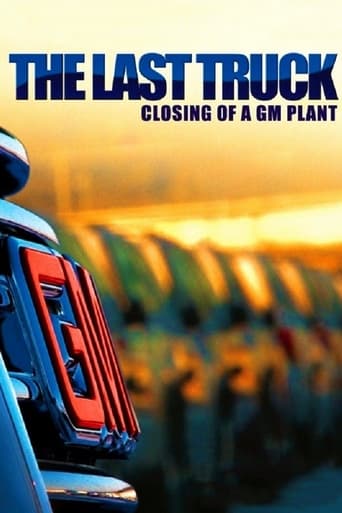Horst in Translation ([email protected])
"The Last Truck: Closing of a GM Plant" is a 41-minute television documentary from 2009, so this one has its 7th anniversary this year already. It was written and directed by Steven Bognar and Julia Reichert back then. This film was nominated for an Oscar in the Documentary Short category and for Bognar it was the first nomination (still is today), while Reichert was nominated twice before that. It lost to a music-focused documentary. This is the story of Moraine, Ohio, when General Motors announced they would be closing their plant, which had huge consequences for the town itself, but also for the many many people who worked in the plant. I must say I myself have no connection to automobiles, the automotive industry or the United States, which makes this little film as impersonal as it gets for me, but I guess it's still not difficult to understand the people in here because they were about to lose their jobs at ages where it's extremely difficult to find a new position, especially in the sector they have been working for years, if not decades. This plant was the foundation of their financial existence. And that's the reason why I liked that the filmmakers mostly focused on the people concerned by this decision to close the plant and not on the people who decided it or on the reasons for the closure. But I also liked the approach by one man near the end who says that it could have happened way earlier and that GM was always a loyal and reliable employer to so many people, so it's also time to see the good, even it it may be difficult at that point. A lot has happened in the area since 2008, so I'd be curious to see a new documentary perhaps about how life went on for the people and how they may still have their hopes up in working again at the plant under a different employer. Or I would also be curious to see if everybody has moved on by now. As for this short documentary here, I am okay with the Oscar nomination and I give it a thumbs-up.
